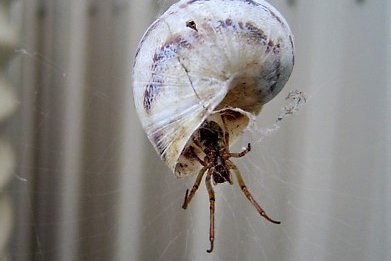Do Spiders like music?

© Reproduction rights Australian Museum
Surprising spiders from our Rare Books collection.
While many of the scientific tomes in the Australian Museum Research Library are highly technical, you can find unexpectedly poetic – and often humorous – musings hidden in the pages of our Rare Books.
To coincide with our latest exhibition, Spiders: Alive and Deadly, we took a look at some of the descriptions of spiders in the Library collection.
We were surprised to find that along with tales of their intricate weaving abilities and killer poison, they were known throughout history for being fans of a killer tune.
WW Froggart’s 1935 book, Australian Spiders and their Allies, includes the following anecdote in his chapter “The Spider in History”, concerning their apparent love of a good melody:
"Spiders are believed to appreciate good music. A captain of the regiment of Navarre was imprisoned in Paris; when he plated his lute, the spiders descended from the webs and listened to him. Pelisson, during his confinement in the Bastille, Paris, had a pet spider in his cell; it would come to him to be fed when a fellow prisoner played on the bagpipes."
The Life of the Spider by JH Fabre (1912) provides extra support for this theory, describing the traditional Italian cure for a tarantula bite:
"To cope with ‘tarantism’, the name given to the disease that follows on the bite of the Italian Spider, you must have recourse to music, the only efficacious remedy, so they tell us. Special tunes have been noted, those quickest to afford relief. There is medical choreography, medical music. And have we not the tarantella, a lively and nimble dance, bequeathed to us perhaps by the healing art of the Calabrian peasant?"
So next time you find yourself startled by an eight-legged furry friend lurking in the corner of your bedroom, turn on the radio and see if they bop along!













